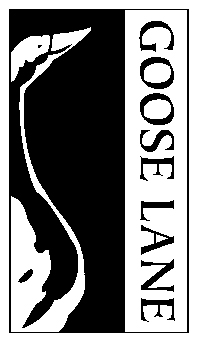Happy holidays, readers! It’s the most wonderful time of year here at Goose Lane, and we’d like to share the cheer with all of you! Take a look at our blog over the next month for holiday tips, festive clips, and helpful gift ideas from our staff and friends.
Remember: if you're shopping online, all of our books are 20% off online, just use discount code NOEL19 with every order.
Today, we sit down with award-winning author Richard Kelly Kemick, author of I Am Herod, a comical account of Kemick's time in a Passion play that will appeal to the saved and damned alike. Anyone interested in the role (or absence) of religion in a community is sure to enjoy a copy in their stocking.
As your time in the Passion play went on, did your vision for the story go under any changes?
Originally, the story was to be about the logistics of how such a massive production was able to take place in the desert each year; I was going to focus on where the money came from, where it went, how the set withstood the sandstorms, etc. The Passion play is such a sprawling spectacle that it would be difficult to mount in Toronto or Vancouver, let alone the arid canyons of Alberta’s Badlands.
However, as my time at the play progressed and I came to know the cast and crew on much more personal level, I realized that the most interesting aspect about the play was not how the play was put on but why the play was put on. The play means so much to so many people, but it also means something different to every person, and there’s a lot of tension in those discrepancies. These opinions and contradictions were so captivating that I felt they needed to be front and centre. That logistical stuff is still in the book, but it now plays second fiddle to these much more raw, funny, unexpected, poignant, and revealing stories.
Would you recommend seeing the Passion play regardless of faith/lack thereof?
The season that I joined the Passion play, the company was at a point of crisis because of how they wanted to answer this question. Some members of the community wanted the play to be opened up to people who were not Christian, people who just wanted to witness the wonder of seeing livestock on stage alongside some sword combat and smoke bombs; other members of the community, however, wanted the play to return to its roots as an evangelical method, where the primary objective was to celebrate (and convert people to) their faith.
The result was this compelling and (at times) confounding hybrid model, where neither side was appeased but neither side was overly enraged either.
So to answer your question: yes, I do think that the play has something to offer to non-religious people — both because it’s such an extravaganza (have you ever seen a sheep sacrifice on stage? Neither had I until I joined the play!) but also because the play has begun to function as a petri-dish example of the current state of religion in our larger communities; and whether or not a person is religious, I think that they have an interest in that discussion.
In your book, you talk about the state of religion in contemporary life. Could you touch on that for a moment?
In the years that my partner, Litia, and I have been together, we have taken a good 20+ road trips. And during those drives, there was no topic of conversation that we did not dissect and discuss. At least, I had thought that there was no topic, but when I joined the Passion play, I came to realize that we had never discussed religion — odd, because it is a much more important topic than, say, whether white wine is better than red (which is obviously true but everyone is too haughty to admit it) or how long Patrick and Amanda will stay together after the wedding (two years, tops).
But I think the state of religion in contemporary life is epitomized by this silence. Our religious beliefs (and in this, I include atheism and agnosticism) are so integral to our sense of self, but we never talk about them with anyone — especially anyone who disagrees with us — and so religion has become this great blindspot in our current cultural moment.
The Passion play afforded me an incisive and unconventional opportunity to ask friends, family, and perfect strangers the question: "Why do you believe what you believe?"

